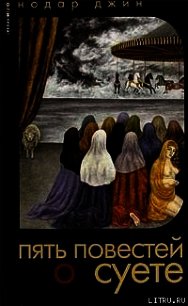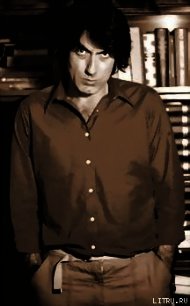Философское - Джин Нодар (книги без регистрации бесплатно полностью сокращений .TXT) 📗
NON-CONSCIOUSNESS: CREATIVITY AS A COMEBACK
International Symposium on the Problem of the Unconscious (1979)
That which cannot be represented through any other thing should be represented through its own self.
1
If one were to formulate a two-word definition of all our era, it might sound as «the imperialism of rеаson». This definition appears to be closest to the truth for two reasons. First, what other than reason proved to be the only god of our time, and, secondly, what other than the imperialisitic divide et impera strategy has been the instrument with which this relentless god asserts himself?
Divide and Rule! This initial and essential principle of reason has, however, in the long run, yielded paradoxical results. Indeed, any rule based on division turned out to be undivided; but such a victory appears still more doubtful than that of Pyrrhus. Man's reason has pervaded everything, not just the micro- and macrocosm, but its own self as well. It has challenged everything; but this very activity of reason has ultimately proved to be destructive, i.e. disuniting everything. Even our remote ancestors knew that all our world, everything around us and within us makes one whole, that «adonai eloheinu adonai ekhad.» But then the triumphal pervasion (invasion) of reason forced us to, at best, disregard this truth.
Everything turned out to be divided. Everything turned out to be constituted by something else, and the constituents of this «something else» are, primarily, separate principles. Whatever stand reason took, it divided, in the first place. The imperialism of reason brought about, for example, the fact that our entire world fell apart into at least two portions — East and West. Even that was not enough: Kipling came and proclaimed that «East is East and West is West, and never the twain shall meet.» The background of this geopolitical subdivision is, of course, the detailed parcelling of everything, intuition separated from reason, thought separated from the senses, man separated from the world, and both dissected, — boundless alienation of everything from everything else. And if we were to discourse of all the above in a form «adequate» to such a content, i.e. in-a strictly academic, even a-la scientific form, then this discourse would have been yet another evidence of the division of human psychics into «scientific» and «normal» psychics.
Meanwhile, the division of the whole could not but attain that ultimate sophistication which emerges in the form of crisis. The most evident manifestation of this crisis is, as it appears to us, the peculiar present-day situation of homo-centrism. This situation is practically illusive, i.e. false; nevertheless, alas, it is real. It is real in the same measure as present-day man is real, literally, as Homo sapiens, as Man-Reason; but it is false, inasmuch as man himself is not Man-Reason at all. Homo-centrism is the tower of Babel of human presumption, presumption which be draws from his reason, from his consciousness; it is a tower erected by man in a world which was not established by man; it is essentially a hideous monument to Reason devoid of Pathos.
Homo-centrism has long been maturing by degrees, as a result of a persistent separation of that which is conventionally termed the East from that which is just as conventionally termed the West, a separation of Pathos from Cogito, sanctified by the tradition of separating that which is called Consciousness from that which cannot be called Consciousness, and is therefore called the Non-Conscious. Homo-centrism is primarily the result of the development of philosophy (philosophy as it began with Aristotle and has now, regretfully, «matured» to become positivism) at the expense of non-philosophy (as it took shape in the immortal books of the ancients, books in which it la impossible to dissever thought from Pathos, the idea from the image, pure Reason from «sympathy». («Sympathy is the feeling which feels the feeling to which it reacts» (A. Heschel, The Prophets, Harper Row, N.Y., 1962, p. 311).
The escalation of rationalism has for a long time been making an impression of progress, inciting one to celebrate victory after victory along the path of this progress. However, these victories kept revealing their tragic nature more clearly from day to day. And by today the excruciating problem of existence which has faced man since the very beginning of his triumphal march with the lamp of Reason, has actually come into greater relief and appears still more dangerous. There can be no other interpretation of the evident fact that the Absurd in all its forms, rationalized and distilled in some cases, fancifully ornamented in others, has penetrated into every cell of the present-day world.
Still, it cannot be stated that the refinement of Reason was entirely futile. Perfected in its own power, even if in part and therefore illusive, confirmed in its own strategy, albeit out-and-out imperialistic, it is owing to its age-long development that Reason has proved capable of bravery: it is a veritable act of bravery on the part of rationalism, veritable bravery of Reason to admit its non-absolute nature and its own limitations. The great power Reason has accumulated in the long course of its development manifests itself in the avowal that in many cases it is actually powerless. This avowal was, in fact, made in the twentieth century and initiated by a rationalist — Dr. Fraud.
On the other hand, the fact that the process of fission of the non-fissile, of subdividing something that is organically whole, has reached its climax just today, and is manifested not only negatively, — in the crisis mentioned above, but also positively, in the form of an opposite process which is called synthesis, i.e., unification of the divided. One of the signs of the waining passion for dividing is the growing passion for unifying. It would be impossible to mention a single sphere of human existence where this tendency to unify the Universe which had previously been subdivided by our reason is not expressed today with a greater or leaser degree of clarity. In this context, our topic — the non-consciousness and creativity — appears to be not only a grateful, but even a cardinal one. The schema presented by us justifies the title of this work; however, before stating the basic points of this schema, the key terms are first to be discussed.
2
Where is the beginning of the end which ends the beginning?
We understand the unity of consciousness and the un-conscious not through the categories of their binominal inter-relations, but as a single unbroken line. Psychics, if you will, is one unbroken line, where only a small portion, named consciousness, is illuminated. It is only this portion that our eye is able to discern, for the eye has only a limited solving capacity of vision. Everything that «precedes» and «follows» this illuminated portion is indiscernible in principle.
Now, as regards creativity. Creativity is a certain state of culture, a state which carries an intensified human, i.e. life-asserting sense. Culture is a term covering everything that Man has added to Nature: creativity is that which lends a genuinely human, i.e. life-asserting sense to the act and fact of addition, to the act and fact of man's penetration into Nature, to the act and fact of its transformation; for man is a being that aspires to remain in existence in despite of the laws of Nature. Culture is a result which retains significance even without any connection with man. A bomb created by man is also culture, but, created by man, the bomb already exists outside him and will exist after him and, what is more, — the bomb can change Nature without man's participation, i.e. it can change something not created by man. Creativity presupposes a living contact with Nature. A scientist comes to certain ultimate conclusions; these conclusions imply man's inevitable mortality; these conclusions are culture, they are knowledge, co-knowledge, i.e. death (as Byron said, knowledge means despondency, and the tree of knowledge is not the tree of life). But a scientist's creativity is life; while the scientist is in the process of creativity, the non-conscious is activated within him, owing to which the «ultimate content of his work on the problem of one's inevitable mortality, his own mortality included, is „not apprehended“ by him. The work of this scientist is not so much his conclusions concerning mortality, as establishing contacts with Nature, penetration into Nature, into that which is immortal. Israel Zangwill said that reason spells darkness rather than light; and in the above sense it is true. Reason offers an alienated knowledge of Nature, but the process of creation overcomes this deadly alienation. The process of creation is that which permits man to overcome the comprehension of his own finiteness, which makes man be „as God“, i.e. gives him an inner, insurmountably powerful sense of being an organic part of a whole oneness, of the whole-oneness of the Universe, a sense beyond the control of consciousness and generated by non-consciousness, — a sense of his own immortality, i.e., oblivion of the end.


